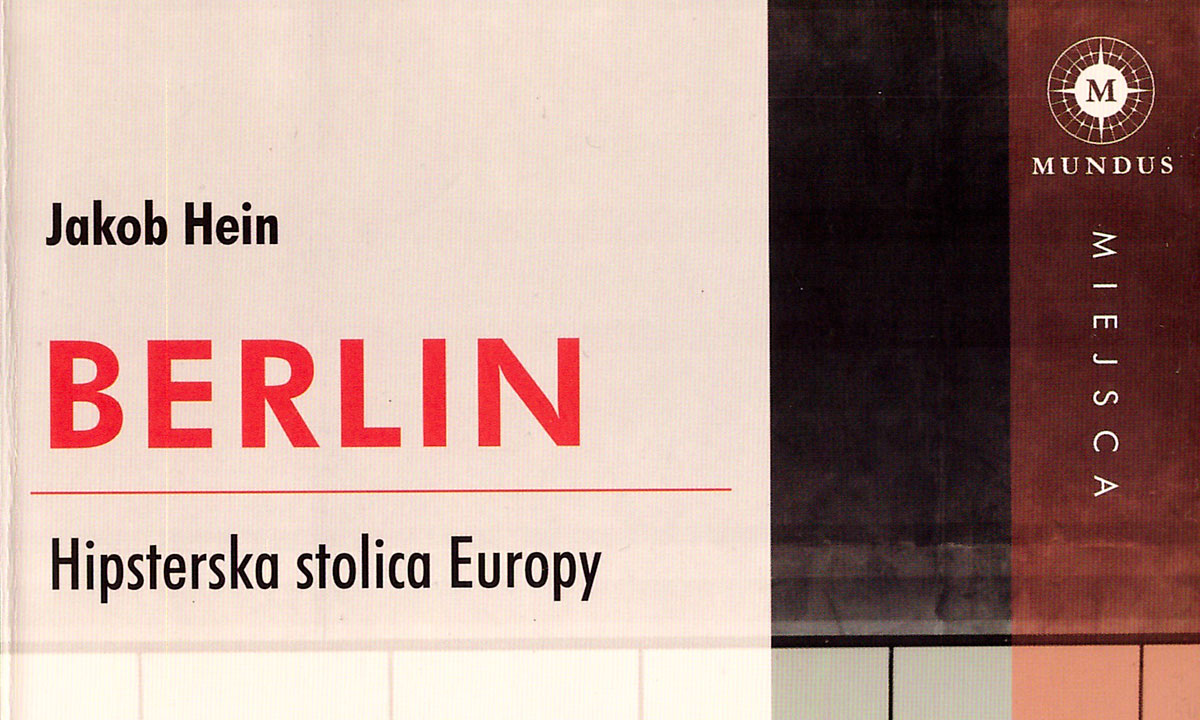The first thought that crosses your mind is: “A person who wrote this must have been well stoned!” A minute later you think: “Isn’t this city, to a large extent, exactly as described in the book?”
Berlin. The Hipster Capital of Europe by Jakob Hein is a bit contrary. It is not a guidebook (even though it contains extensive information on what to see while visiting the city as a tourist, or where to go for entertainment), nor is it a serious historical-cultural oeuvre (despite various pieces of information which prove that the author’s knowledge of the city is far above average).
All in all, Berlin is an ironic book, perhaps even self-ironic.
Hein does not express his love for the city directly. He does so by way of specific frames of reference – by provoking the reader to perceive the German capital – divided for several dozen years – in an unconventional, unorthodox way.
For example, the journey inspired by Berlin underground lines is truly fascinating. The author deems the oldest U1 line “artistically near-perfect”, the U6 line “proletarian” and the U9 line “burgeois”. Initially, one might want to protest against such oversimplification, but – having faced one’s own experience – must agree with Hein’s theories. It is just the way he has described it.
***
Jakob Hein is truly creative. While guiding his readers along Berlin sidewalks, he reminisces about the grim pages of both the city and nation history and, simultaneously, seduces them by evoking the capital’s most notorious smells: ketchup, mixed herbs, latex, aniseed, eau de cologne, black pudding, garlic, coriander or – last but not least – weed.
The book is full of surprises. It would never occur to a visitor to Berlin that the city might be cyclists unfriendly. And yet, Hein’s passages suggest that local cyclists do not have it all that easy. The question arises: are Berlin cyclists indeed disadvantaged? There is no simple answer to that.
Hein does not stop to trick and wind up his readers who must not forget that all that he writes is somewhat ironic and at times sarcastic.
By now it must be clear that the book is not addressed to tourists who arrive in Berlin in order to take a selfie in front of the Brandenburg Gate, check at Charlie Point on their fb accounts and run to Alexanderplatz for shopping. Neither is it – despite the subtitle of the Polish edition – a book for hipsters. It is rather a non-standard offer for those who are already familiar with Berlin, and therefore ready to spend several evenings tuned in to somebody’s individual and peculiar opinions, such as those of Jakob Hein – a man who can boast a fair number of very accurate theories on the B. city.


